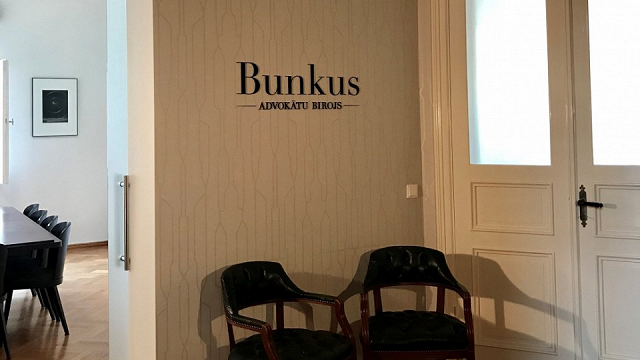On trial for the alleged contract killing of Bunkus in 2018 are LPB banka owner Mihails Uļmans and the largest shareholder of the Mego chain of stores Aleksandrs Babenko, as well as the alleged shooter – Russian citizen Viktor Krivoshev.
As previously reported by LSM, on May 30, 2018, insolvency administrator Mārtiņš Bunkus was shot in broad daylight in his vehicle in Rīga. Though the police said they had a large amount of evidence within months, no arrests were made until four years later and the case finally went to court in April this year.
On Sunday De Facto reported previously-unknown information including that Krivoshev cooperated with investigators soon after his arrest.
As shown by documents leaked on a Russian criminal news portal, the authenticity of which is not questioned by the participants in the case, Krivoshev initially pleaded guilty to the crime. He had not received all the promised payment for carrying out the hit on Bunkus, so last spring he returned to Rīga from Moscow to recover the debt, but was detained. A written confession was found by Krivoshev, which he carried with him, in case he was killed himself.
Krivoshev had also recorded a video on his phone describing the circumstances of the crime.
It is understood that the cooperation between Krivoshev and the police culminated in a recorded conversation in which businessman Babenko mentioned payments to the alleged middle-man in organizing the murder, one Gennady Valagin, who was himself killed last year.
However, a few months later, Krivoshev drastically changed his position and testified that neither he nor the accused businessmen had anything to do with the murder.
Investigating judge Anastasija Pasjuga released Krivoshev from custody last fall – a move which De Facto said caused consternation among some law enforcement officers.
State prosecutor Aldis Lasmanis said that, "fortunately, the person did not leave the country, committed another criminal offense at that time, and we had grounds to arrest him again." While at liberty, Krivoshevs met the brother of the murdered Mārtiņš Bunkus and disclosed information about the investigation without permission, so he was put behind bars again.
Krivoshevs pleaded not guilty at the latest court hearing last week. "I can be accused of shooting [President John F] Kennedy, but that doesn't mean I did it. How can I admit to something I didn't do?" said Krivoshev.
Lasmanis did not want to comment on the possible reasons why Krivoshevs now claims to be innocent. Similarly, Krivoshev's lawyer Renārs Briedis refused to explain the change in his client's testimony to the Latvian Television program: "Thank you, I don't want to comment for now."
Both Ulmans and Babenko also claim they are innocent.
The trial has also attracted criticism for its slow progress. One of the main reasons why the trial of the criminal case has made such little headway is that the defendants do not understand Latvian, although Uļmans and Babenko are both Latvian citizens and Krivoshevs has lived in Latvia. Krivoshev's and Babenko's defense attorneys asked at the Tuesday session to give them more time to familiarize themselves with all the case materials.
"He has read those materials that were in a language he could understand, and he receives the help of a translator for those that are compiled in Latvian. And as much as possible, the basic case has been read. And they are only 43 volumes [of evidence] at the moment from 50 volumes," said Babenko's defense lawyer Helena Purviņa.
Babenko's lawyer believes that the client's rights were violated by sending the case to the court before Babenko has familiarized himself with the materials. When asked why he hasn't done so during the last four months, the lawyer invoked both the prison regime and the doctor's recommendations: "A person, of course, cannot sit in one position and just read for eight hours."
The judge concluded at Tuesday's hearing that enough time had been given to study the criminal case and decided to move forward with the trial of the case.



























